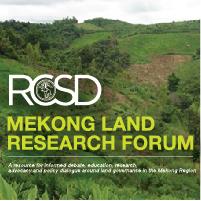Resource information
Vietnam’s 1993 Land Law created a land market by granting households land-use rights which could be exchanged, leased, inherited, sold or mortgaged. This study uses quantitative and qualitative methods to analyze whether increased land titling led to discernible improvements in the economic security of households, and whether land titles in women’s names had markedly different effects as compared to titles held by men. Using a matched sample of households from Vietnam’s 2004 and 2008 Household Living Standards Survey, we find that on balance, land-use rights held exclusively by women or jointly by couples result in several beneficial effects including increased household expenditures and women’s self-employment, and lower household vulnerability to poverty. Titles held by men have statistically significant impacts on their probability of self-employment in agriculture and on food poverty. Results from interviews conducted in Vietnam support these conclusions with evidence that the main channel through which women’s ownership of land rights mattered is increased bargaining power in the home.


